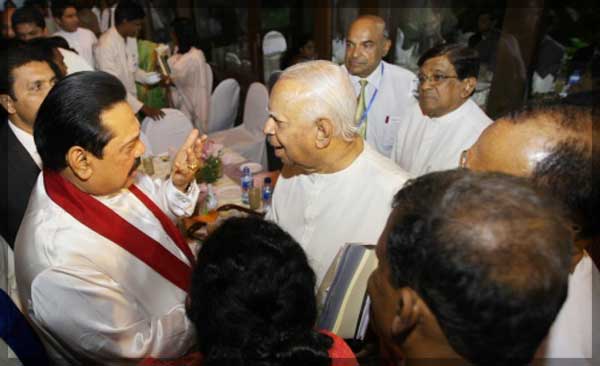Reply To:
Name - Reply Comment
Last Updated : 2024-04-27 00:40:00
(1).jpg) By N. Sathiya Moorthy
By N. Sathiya Moorthy
_DM-9-p.jpg) It is not too late even now. The TNA has its elected members in the local governments. So have other political parties in the war-torn areas. With due respect for the representative status of these elected people, including parliamentarians and members of the civil society, the Government should set up joint committees to suggest and supervise works, hear out complaints and propose solutions. The TNA should either allow others to be members of the committee, or work towards bringing all sections of the Tamil-speaking polity on a single platform, even if it is only for the limited purpose of addressing daily issues of rehabilitation and reconstruction. Reconciliation would have begun there, and could still begin there.
It is not too late even now. The TNA has its elected members in the local governments. So have other political parties in the war-torn areas. With due respect for the representative status of these elected people, including parliamentarians and members of the civil society, the Government should set up joint committees to suggest and supervise works, hear out complaints and propose solutions. The TNA should either allow others to be members of the committee, or work towards bringing all sections of the Tamil-speaking polity on a single platform, even if it is only for the limited purpose of addressing daily issues of rehabilitation and reconstruction. Reconciliation would have begun there, and could still begin there..jpg)

Add comment
Comments will be edited (grammar, spelling and slang) and authorized at the discretion of Daily Mirror online. The website also has the right not to publish selected comments.
Reply To:
Name - Reply Comment
US authorities are currently reviewing the manifest of every cargo aboard MV
On March 26, a couple arriving from Thailand was arrested with 88 live animal
According to villagers from Naula-Moragolla out of 105 families 80 can afford
Is the situation in Sri Lanka so grim that locals harbour hope that they coul

26 Apr 2024
26 Apr 2024